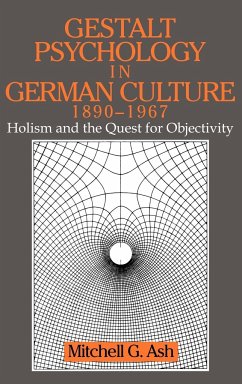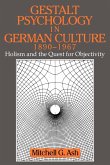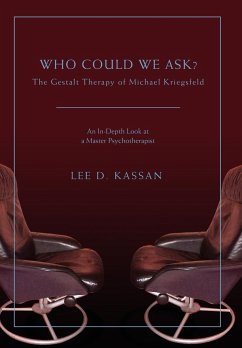This is the first full-length historical study of Gestalt psychology - an attempt to advance holistic thought within natural science. Holistic thought is often portrayed as a wooly minded revolt against reason and modern science, but this is not necessarily so. On the basis of rigorous experimental research and scientific argument as well as on philosophical grounds, the Gestalt theorists Max Wertheimer, Wolfgang Kohler, and Kurt Koffka opposed conceptions of science and mind that equated knowledge of nature with its effective manipulation and control. Instead, they attempted to establish dynamic principles of inherent, objective order and meaning - in current language, principles of self-organization - in human perception and thinking, in human and animal behavior, and in the physical world. The impact of their work ranged from cognitive science to theoretical biology and film theory. Based on exhaustive research in primary sources, including archival material cited here for the first time, this study illuminates the multiple social and intellectual contexts of Gestalt theory and analyzes the emergence, development, and reception of its conceptual foundations and research programs from 1890 to 1967 in Germany. The book challenges stereotypical dichotomies between modern and antimodern, rational and irrational, democratic and proto-Nazi thinking that have long dominated the history of German science and culture. It also contributes to the debate on continuity and change in German science after 1933 with a new look at Wolfgang Kohler's effort to resist Nazism, at the work of Gestalt theorists who remained in Nazi Germany after the founders emigrated, and at the impact of the Cold War andthe professionalization of psychology in Germany on the reception of Gestalt theory after 1945.
Bitte wählen Sie Ihr Anliegen aus.
Rechnungen
Retourenschein anfordern
Bestellstatus
Storno









